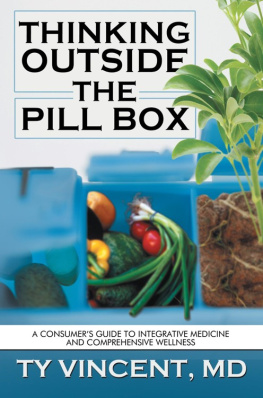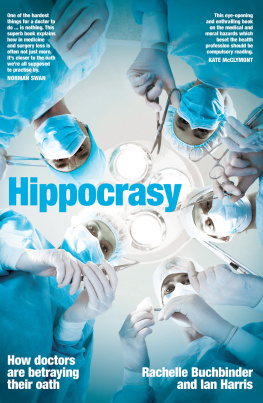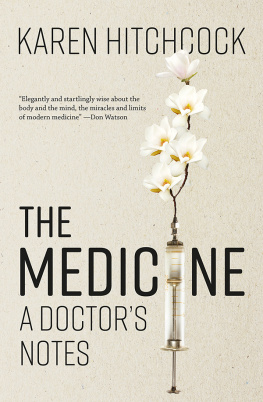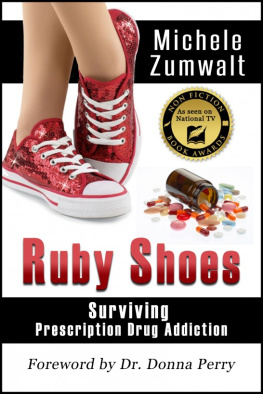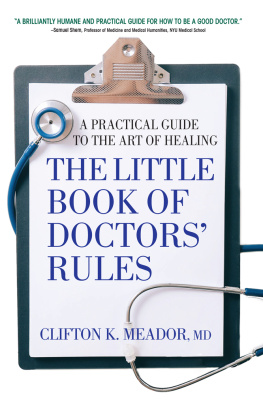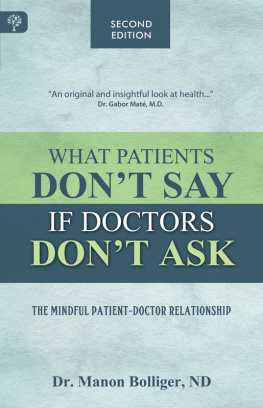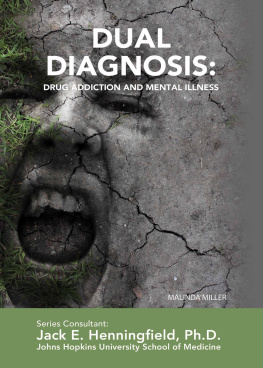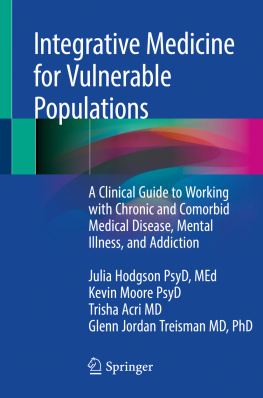Drug Dealer, MD
DRUG
DEALER,
MD
How Doctors Were Duped,
Patients Got Hooked,
and Why Its So Hard to Stop
ANNA LEMBKE, MD

2016 Johns Hopkins University Press
All rights reserved. Published 2016
Printed in the United States of America on acid-free paper
9 8 7 6 5 4 3 2 1
Johns Hopkins University Press
2715 North Charles Street
Baltimore, Maryland 21218-4363
www.press.jhu.edu
Library of Congress Cataloging-in-Publication Data
Names: Lembke, Anna, 1967
Title: Drug dealer, MD : how doctors were duped, patients got hooked, and why its so hard to stop / Anna Lembke, MD.
Description: Baltimore : Johns Hopkins University Press, 2016. | Includes bibliographical references and index.
Identifiers: LCCN 2016010031 | ISBN 9781421421407 (pbk. : alk. paper) | ISBN 1421421402 (pbk. : alk. paper) | ISBN 9781421421414 (electronic) | ISBN 1421421410 (electronic)
Subjects: LCSH: Analgesics. | Medication abuse. | Physician and patient. | DrugsPrescribing. | Drug addiction.
Classification: LCC RM319 .L46 2016 | DDC 615.7/83dc23
LC record available at http://lccn.loc.gov/2016010031
A catalog record for this book is available from the British Library.
Special discounts are available for bulk purchases of this book. For more information, please contact Special Sales at 410-516-6936 or .
Johns Hopkins University Press uses environmentally friendly book materials, including recycled text paper that is composed of at least 30 percent post-consumer waste, whenever possible.
To every patient who has been addicted to prescription drugs, to their loved ones, and to all the doctors who went into medicine to do good but feel trapped by a system gone awry
Contents
Acknowledgments
This book would not have been possible without my patients willingness to share their stories. I thank them for their generosity and courage. I also thank the many health care professionals who agreed to be interviewed; their experiences and perspectives lend richness and texture to my own.
Ive had many wonderful teachers over the years. I am especially grateful to Keith Humphreys and John Ruark, who have guided me, challenged me, and always rooted for me.
Several people have read all or parts of the manuscript along the way. My thanks to my editors Robin W. Coleman and Barbara Lamb and to several anonymous reviewers for Johns Hopkins University Press. Special thanks to my mother-in-law, Jean Chu, one of my earliest readers, a fantastic editor, and a dear friend.
My deepest gratitude to my husband and children, for allowing me time and relative quiet to work on the book.
Note on Terminology
The terminology to refer to people who use drugs and become addicted to drugs is in flux. There is increased awareness, especially among treatment providers, that the language currently used to describe addiction stigmatizes the people involved. Examples include calling someone who is in recovery clean, as if they were dirty before; referring to addictive drug use as drug abuse, which conjures images of other forms of abuse, such as child abuse; or referring to the addicted individual as a drunk or a junkie.
Throughout this book, I have attempted to avoid stigmatizing language in favor of more neutral terms, such as use, misuse, overuse addictive use, and addiction. Nonetheless, terms like addict, drunk, and junkie do appear in this book, when patients themselves use these words to describe their behavior and experiences. Indeed, in the twelve-step self-help community (Alcoholics Anonymous, Narcotics Anonymous, etc.), members often refer to themselves as alcoholic drug addicts. My use of these terms is hence not meant to be pejorative, but to capture the language and experience of drug-addicted individuals.
Drug Dealer, MD
Prologue
After I finished medical school in 1995, followed by a residency in psychiatry and a fellowship in mood disorders (an apprenticeship period that follows medical school), I was finally ready, after nearly ten years of medical training, to treat patients on my own. As I was establishing my clinic at the academic medical center that hired me, I informed the intake coordinators (who check insurance, do a brief psychiatric assessment by phone, and triage patients to the appropriate clinic) that I wouldnt see anyone addicted to drugs or alcohol.
My reluctance in those days to treat patients with substancedisorders. I acquired no skills on how to talk with patients about the often thorny issue of harmful substance use. Alcoholics Anonymous was mentioned, but outside of being encouraged to observe an AA meeting as a guest, no education was provided on how AA might be helpful to patients.
I soon discovered that, despite my effort to avoid treating patients with substance use problems, many of my patients were either misusing or addicted to a variety of substances. According to national surveys, 75 percent or more of patients with mental illness struggle with drug and/or alcohol problems. I became aware of my patients substance use not through any clinical prowess or discernment of my own. To the contrary, in the 1990s I seldom if ever asked my patients about drug or alcohol use. Instead, I typically came into this knowledge after a desperate call from the patients family member, along the lines of: Holly has been in a rollover car accident. Didnt you know that she shoots up heroin every day?! No, I was forced to admit, despite being her psychiatrist, I really hadnt knownmostly because I hadnt thought to ask.
By the late 1990s, I realized I had one of two choices: I could continue to ignore my patients substance use problems or I could figure out how to target and treat addiction. Out of necessity I chose the latter. It became increasingly clear to me that my patients were not going to get better otherwise. Then began a period of reeducation for me. For the next ten years, with the guidance of wonderful colleagues already versed in addiction treatment, and the insight, and sometimes lack of insight, of my patientswho proved to be the best teachers of allI learned what addiction is, how to detect it, and how to intervene to help patients struggling with it. By default, I became the go-to person in my department for patients with substance use disorders. In addition to alcohol, tobacco, and marijuana, I saw increasing numbers of patients addicted to prescription drugs.
The majority of my patients who were misusing prescription drugs were not getting their drugs from a drug dealer; they were getting them from a doctor. Sometimes I was the unwitting prescriber. The extent
According to this patients medical records, her history was marked by the classic downward spiral of a drug-ravaged life, including loss of jobs, friends, family, and a recent near-death opioid overdose. In the months prior to admission, she had obtained and presumably taken more than 1,200 different opioid pills obtained from sixteen different doctors.
I went to see the patient. I heard her before I met her, her demands for more painkillers ricocheting off the walls of the hospital hallway. Her nurses hovered outside her door, afraid to enter, a look of panic in their eyes. When I walked in, the patient saw my white coat and seemed relieved. She launched into her story of unbearable pain. She also freely admitted being addicted to opioids in any form, from prescription painkillers to intravenous heroin. But to her this presented no obstacle to obtaining more pain medication: I know Im addicted, Doc, but if you dont give me the pills I want, Ill sue you for leaving me in pain.
Next page

